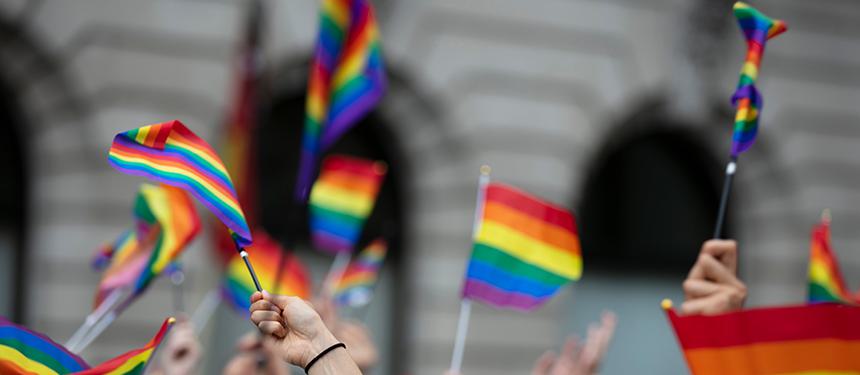Travel with Pride: security considerations for organisations

Pride Month, which typically goes from 1st to 30th June, is a period dedicated to the celebration of lesbian, gay, bisexual, transgender and queer pride. While most events pass peacefully, personnel should be aware of additional security risks during this time.
During Pride Month, communities across the world will be commemorating the LGBTQ+ community with events that include Pride parades, exhibitions, concerts, educational activities, and community gatherings. However, Pride-related celebrations are not legal or widely accepted globally, and in some cases, they may be completely banned or targeted due to clashes with religious and cultural sensitivities, leading to backlash towards LGBTQ+ members and allies. In some countries, Pride month is an opportunity for members of the LGBTQ+ community to protest to demand equal rights and protections, leading to clashes with local authorities.
LGBTQ+ travel risks: A global picture
As of May 2024, 61 countries and territories ban same-sex sexual activity, with most of them located in Africa and the Middle East. While most countries seldom apply such bans, at least two countries, Iran and Afghanistan, impose the death penalty on consensual same-sex sexual acts. Other countries where the death penalty is officially law, but generally not practised, are Mauritania, Saudi Arabia, Somalia, and the United Arab Emirates. Countries where consensual same-sex activity is punishable with imprisonment include Egypt, Iraq, Ghana, Zambia, Yemen, Jamaica, Nigeria, Malaysia, Indonesia, and Pakistan, among others. In the past twelve months, there has been a considerable improvement in LGBTQ+ rights and protections globally, with Cook Islands, Mauritius and Dominica decriminalising same-sex sexual activity and Thailand, Liechtenstein, Estonia, Latvia, and Greece passing legislation to recognise same-sex unions or same-sex marriages.
Although laws forbidding LGBTQ+ activity are not actively enforced in many countries, the law is sometimes an indicator of the perception of LGBTQ+ rights in the location and underscores the heightened risks faced by members of the LGBTQ+ community. These risks encompass a wide range of discriminatory practices, spanning from being denied equal services and rights such as housing and healthcare, to experiencing verbal and physical harassment. In some countries, although anti-discrimination legislation exists, local authorities fail to log and investigate such crimes. State-sponsored homophobia can also appear in attacks by local authorities, such as entrapment through online dating applications or raids of LGBTQ+-friendly establishments.
Transgender individuals are particularly vulnerable to the lack of legal protections. In many countries and territories, transgender legal status is not recognised. Countries may require transgender individuals to undergo sex resignation or sterilisation procedures to be granted the right to change their gender in official documents. Discrimination is more common in countries with constricted transgender legislation. Medications such as hormonal treatments, prosthetics and binders can be subject to questioning by local authorities, particularly during airport security checks. Immigration authorities may require transgender persons to identify with the gender listed in their travel documents rather than the gender they personally identify with.
Security managers and personnel are advised to familiarise themselves with the existing legal frameworks and social and cultural perceptions of LGBTQ+ issues in the destination before deployment. Tailoring security measures and response protocols is the most adequate strategy to mitigate the specific risks faced by LGBTQ+ employees in the country.
All travellers can reduce their risk profile during Pride month by:
- Familiarise yourself with the existing laws regarding the recognition of same-sex relations and transgender status before travelling. Online resources, including Equaldex and the International Lesbian, Gay, Bisexual, Trans and Intersex Association (ILGA), may help security managers and employees understand the legal context affecting LGBTQ+ members in their destination.
- Reconsider participating in Pride events in countries where they have historically led to unrest, have been banned, or where your legal status does not allow you to take part in events deemed as protests.
- Research the legal status and availability of your required medication before travelling, including hormone treatments, Pre-exposure prophylaxis (PrEp) and Post-exposure Prophylaxis (PEP). Also, ensure you travel with the necessary prescriptions if you suspect the medication may be subject to enhanced screenings.
- Make a judgement call before engaging in public displays of affection or disclosing your sexual orientation to untrusted individuals.
- Maintain a low profile on social media platforms and avoid sharing personal information, especially sensitive details such as your home and workplace locations, particularly if you are in countries with increased surveillance and entrapment risks. To protect your privacy, it is important to exercise discretion and limit the amount of personal information you reveal online.


